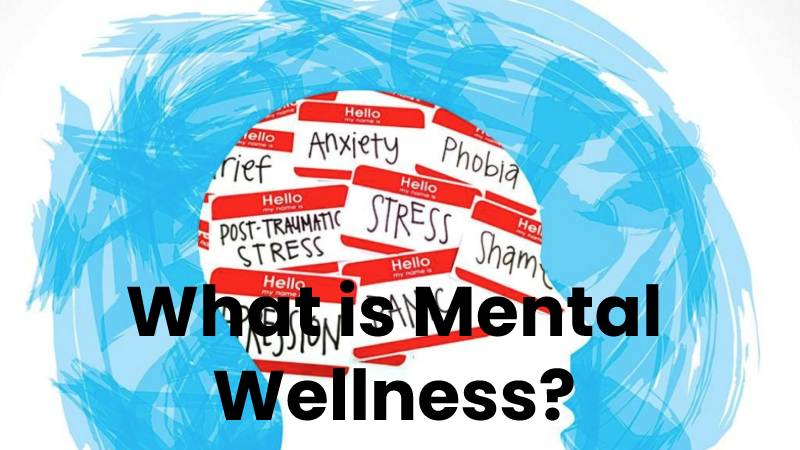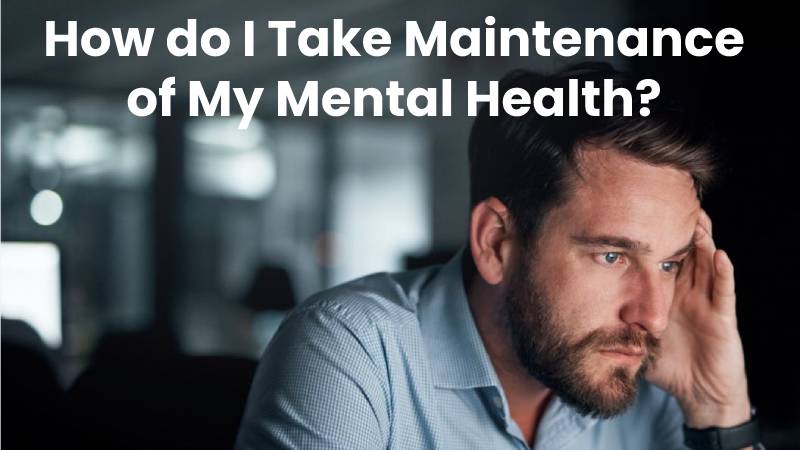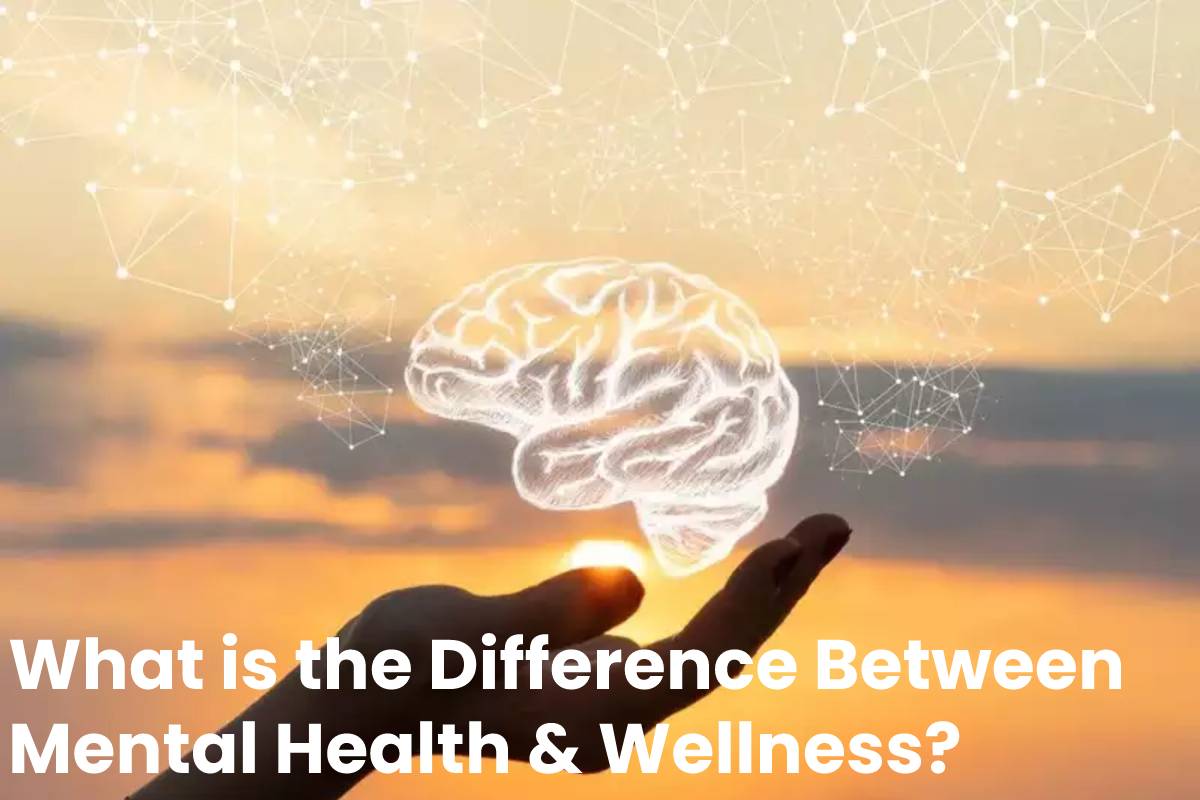Difference Between Mental Health & Wellness – Unfortunately, many people casually use mental illness footings to describe specific circumstances. For example, somebody saying, “I’m so OCD!” when they insist upon taking a clean workspace or saying, “I was so depressed when Walk Madness remained canceled,” to describe the disappointment. These casual accounts misrepresent the essential differences between emotional Well-being, mental health, and mental illness.
Emotional Well-being remains defined as partaking in both an awareness of your emotions and the ability to manage and express those feelings in a healthy and age-appropriate manner. It includes good mental and human health, high life satisfaction, and a sense of import. More generally, well-being is just feeling decent about yourself and your life.
Mental Health remains made up of our expressive, psychological, and social Well-being. It touches on how we think, feel, and act. It also helps govern how we handle pressure, relate to others, and make choices. Mental health is significant at every stage of life, from childhood and adolescence through adulthood. Such things can destructively impact living in a difficult marriage, struggling with aging parents, or poor work/life balance.
What is Mental Wellness?
When your mental health is in an upright national, ” mental wellness is called “mental wellness.” It means that your mind is working as it should be and that you can function in optimistic ways in your life. If you are mentally well, you might:
- Have greater mindfulness of your abilities and positive qualities
- Better handle the taxing or uncertain circumstances
- Stand more productive
- Have a more lively role in any community you are a part of
Mental wellness is the result of your investment in your mental health. It takes exertion to get to and sustain. Some of the habits you can get to mental wellness are:
- Get to recognize yourself
- Understand pardon you can change and what you cannot change
- Understand what your fortes and weaknesses are and build from there
- Develop consciousness of your feelings and needs
- Set mental health boxes that are achievable and have established time parameters
What is Mental Health?
While physical Well-being relates to the state of your body, mental health is the state of your mind’s Well-being. Your mental health always stands in a state of flux. Some days may be better than others. Therefore, there is a relationship between physical and psychological health.
Life skills, your environment, relationships, and the communities you live in can also impact your mental health. People commonly experience a troubled state of attention or have issues with mental health. However, there is always help available. Reach out if you have trouble. Living with mental health issues or cerebral illness can be incredibly problematic and challenging.
Some signs you may need support are:
- Irregular consumption or sleeping
- Isolation from people or belongings you used to love
- Constant fatigue
- Feeling locked down or numb
- Loss of hope
- Drinking, burning, or using illicit drugs in large quantities
- Frequent feelings of misunderstanding, forgetfulness, anxiety, anger, worry, or fear
How do I Take Maintenance of My Mental Health?
There are many ways to revenue care of your mental health. However, the most excellent and effective strategies will always remain tailored to the separate. Some options for how you take upkeep of your mental health are:
- Talk to your doctor. Speak through a physician you trust. They can listen and recommend many types of meditation, therapy, mindfulness, exercise, or diet vagaries.
- Mindfulness and meditation. These systems can help us understand what stories or thoughts might be at the root of our mental health troubles.
- Find someone to talk to. The right analyst, counselor, or psychiatrist can be essential in healing your mental health.
- Mental wellness helped shift the viewpoint from stigma to shared people and shared responsibility. But unfortunately, even though the mental health arena has done a lot of work to mitigate the stigma surrounding mental illness, a sense of shame, denial, and secrecy continues to afflict people in communities and cultures worldwide.
During the last century, modern thinking and its approaches to treating mental illness have focused on individual behavior and individual-level interventions, such as talk therapy and drugs. Mental health favors a more holistic approach encompassing personal agency alongside social and environmental dimensions (e.g., family, friends, community connections, living environments). In doing so, mental wellness helps shift our perspective toward a sense of shared humanity and shared
There Is a Great Difference Between Mental Health and Mental Illness
Mental health and mental illness stand not the same things.
According to the Centers for Sickness Control (CDC), mental illness refers to “conditions that affect a person’s thinking, feeling, mood, or behavior.” This canister includes but isn’t limited to depression, worry, bipolar disorder, or schizophrenia.
Mental health imitates “our emotional, psychological, and community well-being.” Affecting “how we reason, feel, and act,” mental health profoundly impacts how we interrelate with others, handle difficulties, and make decisions.
Christopher M. Palmer, MD, manager of McLean’s Department of Postgraduate and Continuing Education, pierced that mental health and mental disease are similar to physical health besides physical illness.
“It’s not all or nothing,” he said. Also, “The period’ mental health’ implies the absence of illness or disorder. But there are a lot of conducts people can be mentally healthy or ill, just like there are many ways to be physically healthy or unwell.” So both cerebral health and mental illness are states of being on a spectrum.
Health Literacy Is Incredibly Important Yet Uncommon
Despite the global rates of mental disease, many still don’t understand what mental illness or mental health means. For example, a 2015 education of working-age adults in the United Kingdom found that about 61% of respondents had a poor understanding of mental health conditions, symptoms, and treatments.
Attitudes About Mental Illness and Mental Health
A CBS News poll showed in the fall of 2019 detailed American attitudes and awareness of mental health issues. Also, Almost 90% of defendants said there is some stigma and discrimination associated with mental illness in our society. However, more than 30% stated that discernment and stigma associated with mental illness have decreased over the previous ten years. However, about 30% said that the condition remains unchanged. Difference Between Mental Health & Wellness.
Conclusion
Mental health is a state of well-being in which a person fulfills their abilities and can cope with the everyday stresses of life, work productively and contribute to their community.

